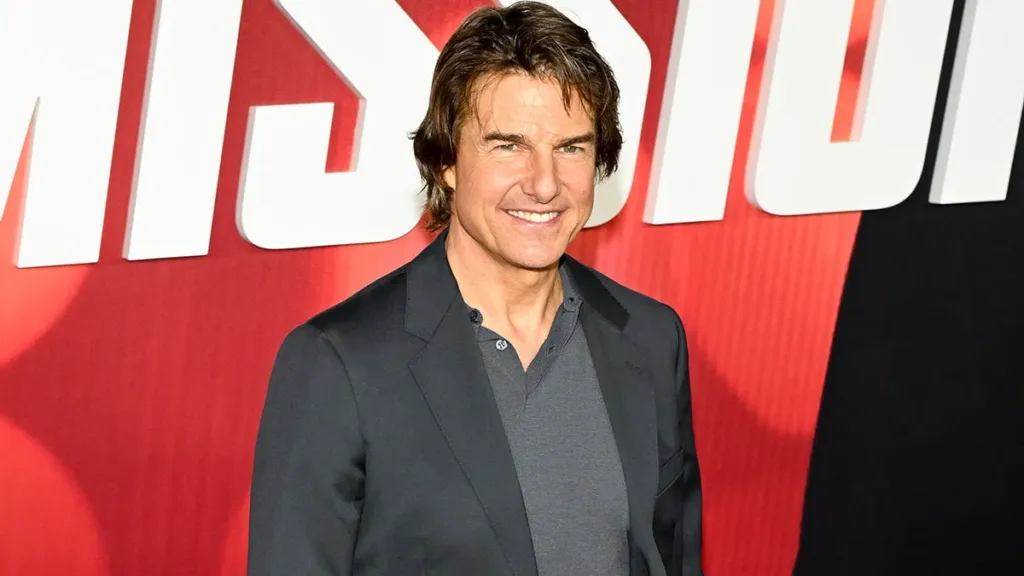During a press event in Seoul promoting Mission: Impossible – The Final Reckoning, Tom Cruise declined to respond to a question concerning former President Donald Trump’s proposed tariff policy on films produced abroad. The question referred to the film’s international shooting locations and whether the production might be subject to such tariffs.
“I’d like to ask this question to anybody who’s up for it,” the reporter began, according to a translated exchange at the event. “I saw that it was filmed in many different locations around the world, including Africa. We all are aware of the tariffs that President Trump has been imposing on overseas productions and films. So, is this particular movie under that tariff? And how much of the film was shot overseas?”
Cruise responded off-mic to the moderator: “We’d rather answer questions about the movie. Thank you.” The moderator acknowledged the direction and moved the conversation forward. Representatives for Cruise have not issued further comment.
The production was filmed in several countries, including the United Kingdom, Norway, and South Africa. The Mission: Impossible franchise, which began in 1996, has consistently featured global locations as part of its identity. The series has earned more than $4 billion worldwide, with each installment led by Cruise and produced by Paramount.
The policy in question was outlined by Trump in a recent social media post, where he wrote that foreign incentives had weakened the domestic film industry and described the shift as a threat to national security. “Hollywood, and many other areas within the U.S.A., are being devastated,” he wrote. He stated his intention to direct the Department of Commerce and the U.S. Trade Representative to begin steps toward implementing a 100 percent tariff on films produced outside the United States and imported for domestic release. The White House clarified that the policy has not been finalized.
Several large-scale studio projects, including Dune: Part Two, Wicked, Deadpool & Wolverine, Avengers: Doomsday, and Christopher Nolan’s The Odyssey, have been produced outside the U.S. in recent years.
Cruise’s appearance in Seoul is one stop in a larger promotional tour ahead of the film’s May 23 release and its upcoming premiere at the Cannes Film Festival. Ahead of the premiere, he participated in an extended interview for Sight and Sound magazine, published by the British Film Institute, in which he spoke about his creative process and several of his most significant collaborators.
Cruise, who will be honored by the BFI with a Fellowship, spoke in detail about Eyes Wide Shut, the 1999 film directed by Stanley Kubrick. He recalled the start of the collaboration, including a personal introduction through Sydney Pollack and a conversation with Martin Scorsese about Kubrick’s work. Cruise said he traveled to Kubrick’s home, landed in his backyard, and began discussing the film after reading the script the day before.
During the process, Cruise suggested Nicole Kidman for the role of Alice. “Obviously she’s a great actress,” he said, in a rare public reference to her performance. He noted the lengthy production schedule and recalled how scenes were rewritten and reshot to shape the film’s tone. “It was a very specific environment… just a small crew, and a long period of testing,” he said.
He also described working with Val Kilmer on the Top Gun films. Cruise said Kilmer initially resisted joining the original production because he wanted to lead films, not take a supporting role. “Tony Scott was hunting him down,” Cruise recalled. “And I was calling his agent… Please, Val, please.”
Reflecting on Kilmer’s performance, Cruise said, “He had to play it so you wanted these guys to be friends in the end.” Cruise described the scene chemistry as something he could still vividly recall, calling Kilmer’s presence on Top Gun: Maverick set years later “amazing.” He emphasized how Kilmer’s portrayal of Iceman remained powerful without needing dialogue. “Even not saying anything, he became that character.”
In the same interview, Cruise spoke about working opposite Jack Nicholson in A Few Good Men. He described Nicholson as someone who controlled his voice, posture, and physical presence to build the courtroom scene’s intensity. “He’s like a crooner that knows how to carve up a monologue,” Cruise said, emphasizing the precision with which Nicholson shaped the performance.
He extended similar praise to Marlon Brando’s work in The Godfather, citing the famous scene involving a cat that was incorporated into the film on the spot. “That was it,” Cruise said. “Coppola handed him that cat and he did the scene.”
Cruise called such moments an outcome of deliberate preparation. “It’s not just by chance. You work towards lightning in a bottle,” he said, referring to the rhythm and spontaneity required on set. He described acting as a space where each take must be discovered anew and compared it to music, where collaboration between actors opens unexpected directions.
The Sight and Sound interview is featured in the magazine’s May issue, which arrives on stands next week.
